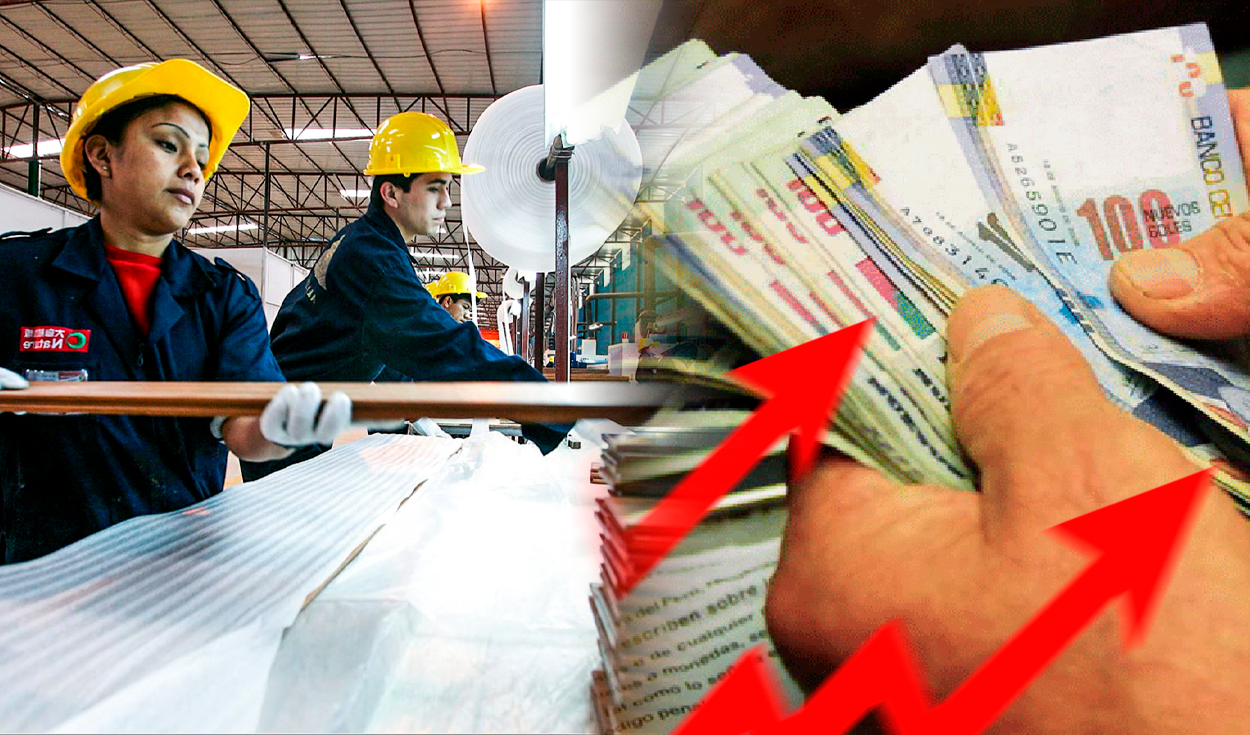
In her first address to the nation as president, Dina Boluarte promised to “soon announce an increase in the minimum wage” to improve “the living conditions of our workers.” Her words were lost like tears in the rain.
Almost a year later, since the Ministry of Labor and Employment Promotion (MTPE) They put the issue on the table, and hope to debate the increase in the Minimum Vital Remuneration (RMV) before 2025, thanks to the good performance of the economy in the last two months.
“We must begin to discuss raising the minimum wage (…) “We had announced that if the economy improves, we must think, start talking and discussing about an increase in the minimum living wage, because we all know that it is not enough. This is taking into account the economic results of April and May,” commented the head of the MTPE, Daniel Maurate, to the media.
There was a lack of will (and there will continue to be a lack of will)
Much has happened since Dina Boluarte’s promise to the million salaried workers in the private sector who receive the S/1,025 minimum wage: a recession that plunged us to the worst GDP result in just over three decades, not counting the pandemic, for example.
Maurate, in defense of the head of state, pointed out that the limited pace of economic growth frustrated any attempt to correct the RMV upwards. If it had been done, the micro and small businesses would have been more affected – according to the minister – since large and medium-sized businesses pay more than the minimum. It is worth noting that micro and small businesses are the business fabric par excellence, and they cover 99% of businesses in Peru.
Now, Maurate insists that the Boluarte administration has the will to raise the RMV – after the rate slightly higher than 5% in the GDP of April and May – and for this they will call the National Labor Council (CNT)However, the General Confederation of Workers of Peru – CGTP warns that it is all a salute to the flag.
“The last increase was in May 2022. More than two years have passed and there has been a significant devaluation of the amount. The current remuneration does not cover the minimum products for the basic basket,” Gustavo Minaya, secretary general of the CGTP, told La República.
The union member maintains that the workers are seeking a progressive increase in the RMV to S/2,500 over a period of 5 years.
Minaya maintains that the delay in the increase of the RMV is one of the many reasons why they will undertake a nationwide march on July 19: another key point is the urgency of equalizing the minimum pension of the ONP (DL 19990), which currently has a base of S/500, with the S/1,025 of the minimum wage.
“The Constitutional Court already said that pensions should be equal to the minimum living wage, not us, but the ruling is still not being complied with”lament.
Formula on hold
In 2007, the National Labour Council agreed on a technical mechanism to periodically review the RMV. None of the subsequent governments institutionalized it and it remained in the air, until in 2022, the International Labour Organization (ILO) proposed a figure to update it based on a series of indicators.
The former Vice Minister of Employment Promotion, Fernando Cuadros Luque, has used this journalistic trench to recall the key points of the ILO formula already approved by the Government of Pedro Castillo: review the RMV once a year so as not to affect the purchasing power of employees.
This percentage increase in one year will be equivalent to the inflation rate and percentage variation in average labor productivity (average contribution of the labor force) in the previous year, in order not to affect the sustainability of companies and minimize collateral effects on the labor market, mainly.
Here, Minaya recalls that the business bloc has distanced itself from dialogue and it is most likely that this formula will not see the light of day.
MEF insists: interest in Peru is growing
Not only in the mining sector but also in the energy, fishing and port sectors there is a recovery of interest from foreign investors in our market, reported the Minister of Economy and Finance, José Arista.
“We have all the conditions to be an attractive country for investment, national or foreign. First condition, solid macroeconomic principles,” he noted during his recent visit to the Congressional Budget Committee.
However, he acknowledged that citizen insecurity is one of the weakest points for investors, but blamed the Attorney General’s Office for its “lack of cooperation.”
Source: Larepublica
Alia is a professional author and journalist, working at 247 news agency. She writes on various topics from economy news to general interest pieces, providing readers with relevant and informative content. With years of experience, she brings a unique perspective and in-depth analysis to her work.












